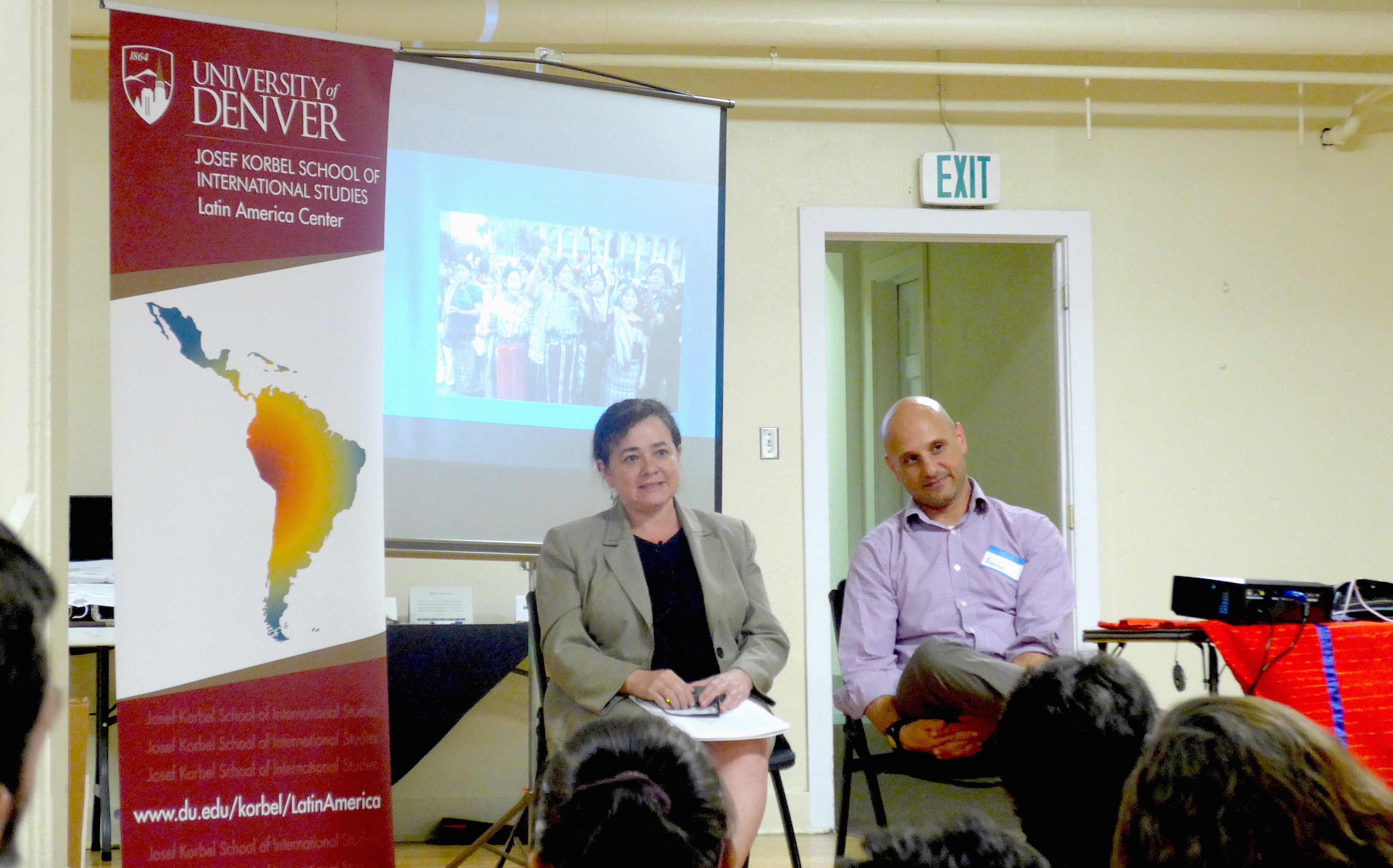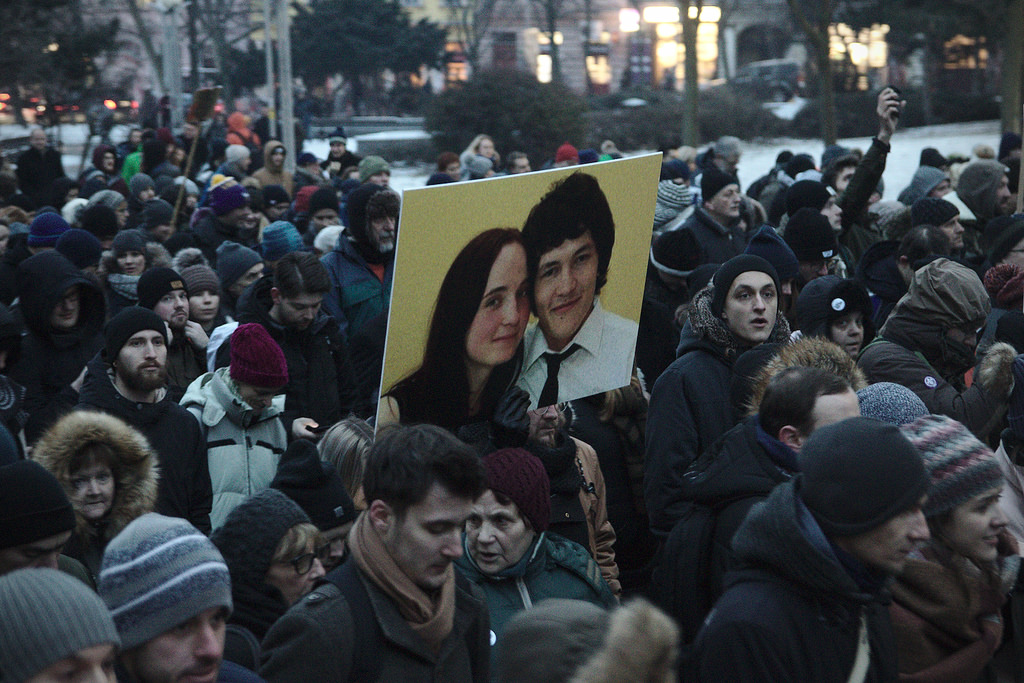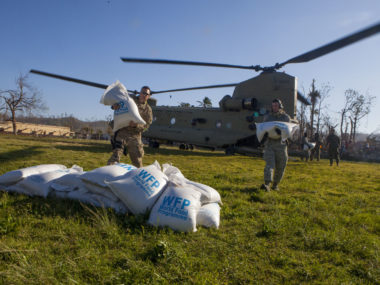By Cassy Dorff for Denver Dialogues
The conversation on “bridging the gap” is a well-aged one to say the least. Recently, other bloggers have discussed the theme of “bridging the policy gap.” See, for example, Deborah Avant’s earlier reflection after this year’s ISA meetings on the varying ways in which people are (or should be) producing policy-connected work through efforts such as collecting publicly available data, producing joint practitioner-researcher analysis, participating in cross-pollinating workshops, or establishing personal relationships with professionals outside of academia. See also Cullen Hendrix’s analysis of The Problem with the Problem of Bridging the Gap, which inspires a broader discussion on policy for the people forging policy inroads at the local, community level. Finally, as a more recent and timely reference, see Federica Caso’s thorough consideration of EU academics’ open letter to politicians in the wake of the on-going refugee crisis.
I am of the sentiment that the often touted adage of academics “living in the ivory tower” with little to no influence in the “real world” is a narrow conception that fails to hold up to scrutiny. Even the sheer amount of reference material that academics regularly provide for journalists, policy-makers, judges, and podcast creators is evidence of the intersection of academic material and non-academic material. So with that generalist claim aside, I also acknowledge that debate on the more complex topic of how – and in what ways – academics can better engage in real-world (and timely) problem solving is important. In the hope of offering something beyond more chatter on the topic, I’d like to give readers an example. By way of empirical anecdote, herein I provide a quick overview of a recent, event-filled day that captures a wide range of “gap-bridging” moments, with the intent that it inspires more tangible and inclusive thinking around how both institutions and individuals can create new links between researchers, practitioners, and their local communities.
On October 1, 2015, Dr. Claudia Paz y Paz stepped onto the University of Denver campus with a full agenda ahead of her. A guest of the Josef Korbel School of International Studies Latin American Center and the Sié Center, her day was filled with meetings and events to share her experience with a wide range of audiences. You might know Dr. Paz y Paz as a Nobel Peace Prize nominee, which emphasized her powerful tenure as Guatemala’s first female Attorney General from 2010 to 2014. It was as Attorney General that Paz y Paz adopted courageous strategies to confront corruption and violence within Guatemala and tackle high-profile cases such as the prosecution of former dictator Efraín Ríos Montt and the perpetrators of the Dos Erres Massacre. You might also know Dr. Paz y Paz from recent news on the group of experts appointed to conduct an independent investigation of the Ayotzinapa 43 missing students. And if you have not heard of her — well, now you have.
In Denver, her day began with a lengthy conversation with two academics — post-doctoral research fellows Devin Finn and myself. We wanted to know more about Dr. Paz y Paz’s experiences in Guatemala and what the future holds for the seemingly fragile state. We were curious to discuss Dr. Paz y Paz’s views on Mexico, and whether or not independent investigations and international pressure can rectify an increasingly dysfunctional judicial system. Much of our conversation was off-the-record but can be easily described as a fluid exchange of ideas and experiences. The interaction with Dr. Paz y Paz was both difficult and inspiring on a number of levels. It left me with a greater sense of accountability and meaning for the work that I and other social scientists produce. Towards the end of our time together, we asked Dr. Paz y Paz how she viewed the relationship between academic researchers and policy practitioners. She grinned at us— we seemed to have overlooked a key personal detail. In reply, she tossed her hands up and said that she considers herself both an academic and practitioner. (Given her rich personal history, it is a fair point). From a more general perspective, Dr. Paz y Paz said that she firmly believes in the fluid and constant exchange of information between experts with specialized and “unbiased” knowledge and experts with a rich history of decision-making experience. For her—a judge, a rigorous case-maker by trade—the provision of independent evidence is crucial.
Two other key events took place during Paz y Paz’s busy visit. After our meeting, she spoke at a lunch event that undergraduate, Masters, and PhD students, research fellows, and academics attended alongside community members, local organizers, and university donors; a notably integrated audience. The energy at the event was both attentive and encouraging. The feeling of attentiveness was inspired by the sheer importance of Paz y Paz’s shared experiences as she spoke about her time as attorney general, the risks she and her team took in order to achieve justice, and the role of intriguing, United-Nations backed CICIG (the International Commission Against Impunity in Guatemala). The diversity of the event’s attendees and the effort of audience members to connect Paz y Paz’s experiences in Guatemala to other crises around the world inspired an enlivened, stimulating mood in the room.
At the end of the day, a final moment of learning and mixing across academia, local community members, and the tireless Paz Y Paz came to a close in the underground room of a local church. Notable was the presence of members of Denver’s Latin American community, including survivors of the Guatemalan civil war and local organizers from El Grupo Colorado sin Fronteras Unidos por Mexico. The turnout was impressive, the crowd engaged and moved by Dr. Paz y Paz’s participation.
This one day touches on a range of “bridging the gap” moments. Sure, there are some obvious ones — two academics interviewed a policy maker and entered into an exchange over the type of information useful for serving practitioners and vice-versa. But there are some larger takeaways as well. Namely, a world-famous human rights specialist spoke face-to-face with concerned citizens and activists, in a space moderated and supported by academics. This kind of intersection is critical for generating accountability across all groups of active and engaged thinkers: academics, organizers, policymakers, and curious community members alike.
Join us next week for Devin Finn’s upcoming collaboration with Dr. Paz y Paz.







2 comments
interesting